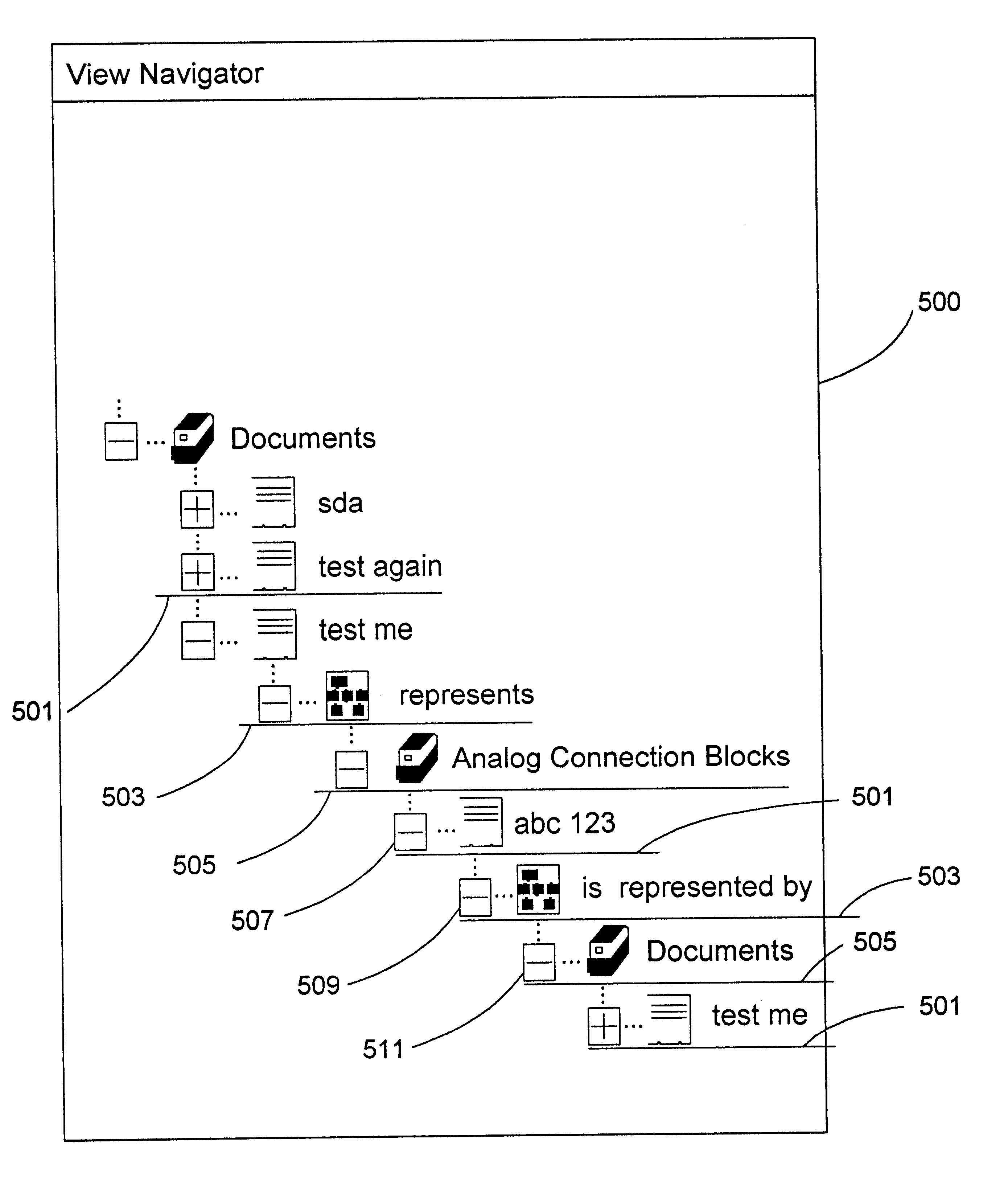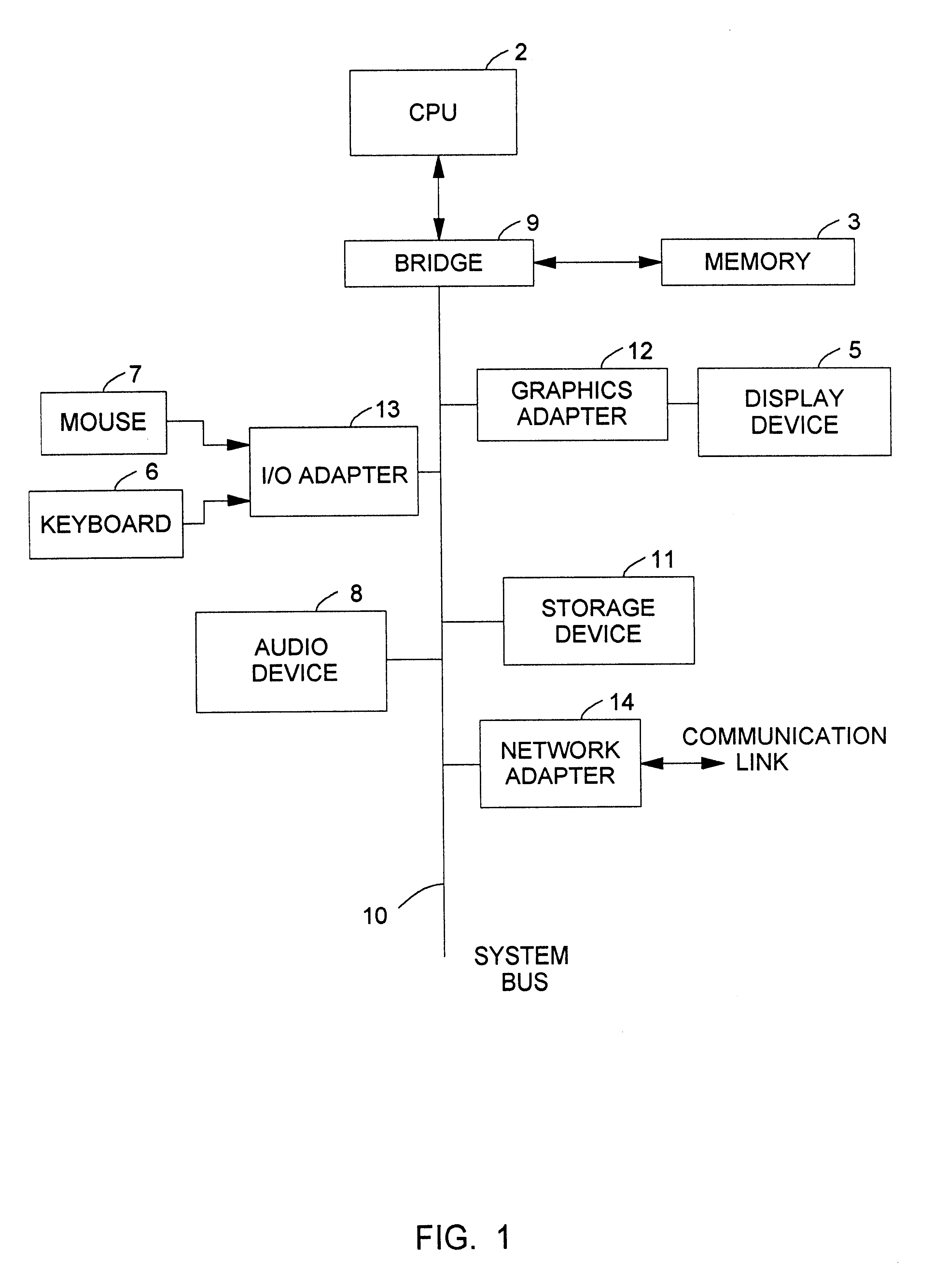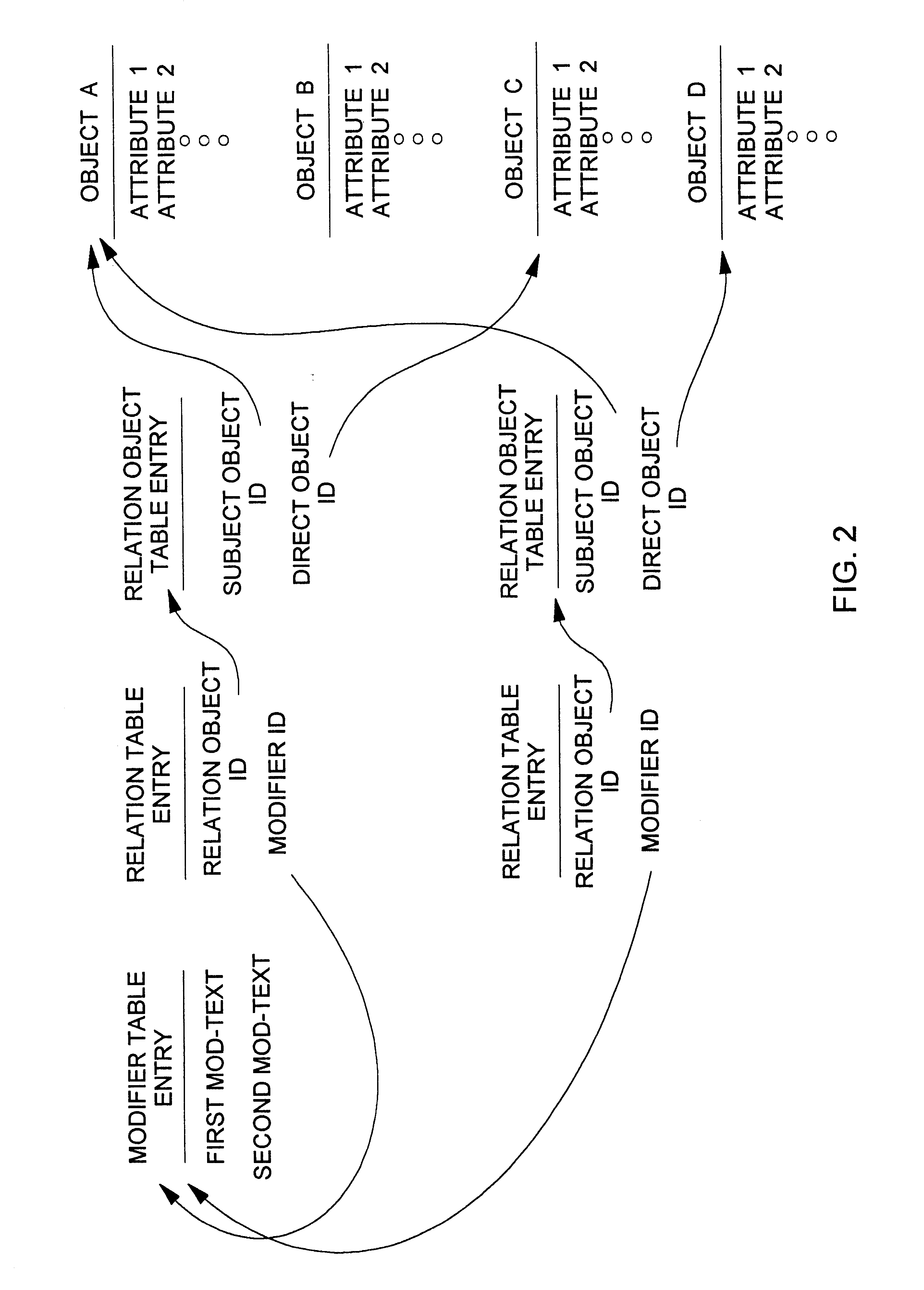View navigation for creation, update and querying of data objects and textual annotations of relations between data objects
- Summary
- Abstract
- Description
- Claims
- Application Information
AI Technical Summary
Benefits of technology
Problems solved by technology
Method used
Image
Examples
Embodiment Construction
Of the Present Invention should be read in conjunction with the accompanying Drawings, wherein:
FIG. 1 is a schematic representation of a computer processing system in which the present invention may be embodied.
FIG. 2 illustrates the logical data structures representing an object relation, which stores textual annotation characterizing the semantics of a relationship linking two (or more) objects according to the present invention.
FIG. 3 illustrates the logical data structures representing a type relation, which stores textual annotation characterizing the semantics of a relationship linking two (or more) object types according to the present invention.
FIG. 4 illustrates an exemplary embodiment of the logical data structures of FIGS. 2 and 3 in a relational database model, including an Object Table, Relation Table, Relation Object Table, Modifier Table, Relation Type Table, and Object Type Table.
FIGS. 5A and 5B are views of a window representing an exemplary graphical user interface...
PUM
 Login to View More
Login to View More Abstract
Description
Claims
Application Information
 Login to View More
Login to View More - R&D
- Intellectual Property
- Life Sciences
- Materials
- Tech Scout
- Unparalleled Data Quality
- Higher Quality Content
- 60% Fewer Hallucinations
Browse by: Latest US Patents, China's latest patents, Technical Efficacy Thesaurus, Application Domain, Technology Topic, Popular Technical Reports.
© 2025 PatSnap. All rights reserved.Legal|Privacy policy|Modern Slavery Act Transparency Statement|Sitemap|About US| Contact US: help@patsnap.com



